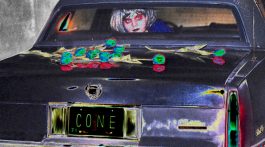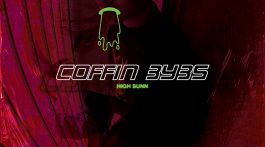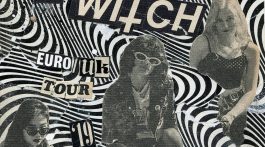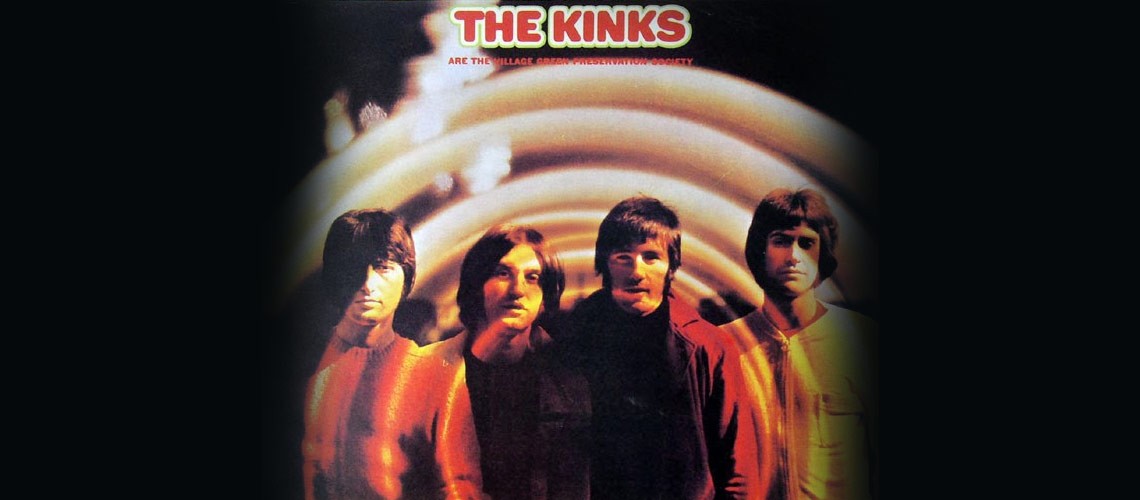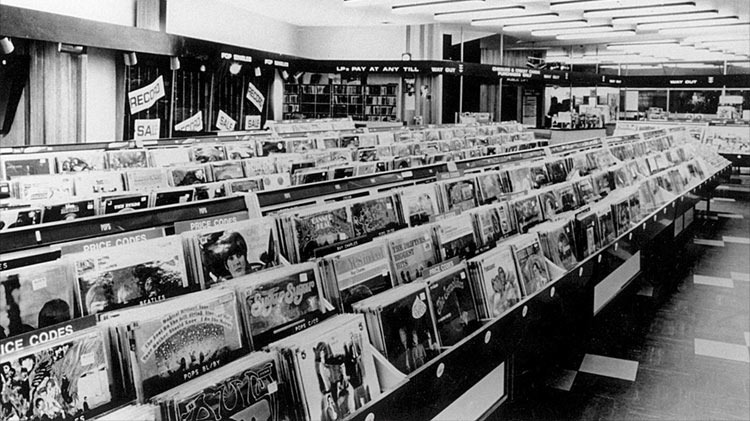While on an epic traveling adventure and stranded at The Wild West Hostel outside of Dallas this past summer, I finally met another soul as deeply reverent toward The Kinks Are The Village Green Preservation Society as I. Masao was a busker visiting from Japan and traveling the western U.S., performing original material as well as classic rock covers. We immediately bonded over music as he had acquired a gorgeous vintage mahogany guitar in California, and was practicing in the common area. We harmonized while he strummed “Blackbird” and played a few of his own songs, until finally stumbling upon the topic of The Kinks. We moved outside to smoke a cigarette, and were both equally surprised and delighted to discover that we each held a special place in our hearts for The Kinks sixth album. As we were singing the title track under the fading Texan sun, it became apparent to me that the album still holds relevance, even to our generation. Unfortunately, Masao would leave early in the morning to head to New Orleans, so we did not get to venture further into each others musical minds.
Last month, Village Green turned 47. Some call it Ray Davies’ Sgt. Pepper moment, though the only song that reflected this statement stylistically was “Phenomenal Cat”. The album takes the listener on a different kind of journey, one where childhood nostalgia and the simplicity of the English countryside are paths to peace and freedom. Leading up to the album, The Kinks had hit a few rough patches both personally and in their career. After celebrating hit singles “You Really Got Me” and “All Day and All of the Night”, the group ventured on a successful U.S. tour, only to be banned from returning the country for 4 years. An onstage squabble between guitarist Dave Davies and drummer Mich Avory in Wales and a neglected payment of dues to the American Federation of Television and Recording Artists resulted in a blacklist by the organization. Ray Davies later told Uncut , “I felt we’d had a raw deal, the band were being punished unjustly”. The result was a missed opportunity to for American fans to see the band at what may have been their best years. The popularity of the act slowly declined in the states, though The Kinks remained successful in the UK and Europe. Pressure from the industry to write hits and the headache from tour and legal troubles led Ray Davies to have a nervous breakdown. Bass player Pete Quaife was involved in a car wreck and temporarily left the band in ’66. It is easy to imagine the yearning for lyricist Ray to find a place of comfort after the difficulties the band had faced.
The concepts behind Village Green originated in Ray’s recollection of memories of growing up in Fortis Green (also the name of a Dave Davies solo record). “The world existed in a square mile” Ray is quoted as saying in God Save the Kinks: A Biography. His longing for innocence is displayed on the title track, where he sings, “God save little shops, china cups, and virginity”. He is also making a case for keeping the town pure and refuting the age of commercialism by sharing his scorn for office blocks and skyscrapers. Davies also includes many uniquely British things he is fond of, like custard pie, draft beer, and tudor houses. The music accompanying his manifesto paints pleasant visions of green moorland on a sunny afternoon, with a jangly piano and a steady bass that reels you into the adventure.
We come to meet a few of the village’s residents along the way. “Do You Remember Walter”, recalls an old friend who is probably “fat and married and…..in bed by half-past eight”. “Do you remember, Walter, how we said we’d fight the world so we’d be free?”, the singer asks, before finally accepting that though Walter has changed, he can still enjoy memories of their olden days. Quite the opposite of Walter is “Johnny Thunder”, who “vowed that he would never, ever end up like the rest”. Even more fierce than Johnny Thunder is “Wicked Anabella”, a demon-wielding sorceress who brews potions and can burn a man’s soul in a single glance. Musically the track almost seems to be a pre-cursor to grunge, with a very heavy, fuzzy bassline and lo-fi style vocals. Perhaps Annabella has found the solace of the village green deep in the woods, plotting against the world that threatens it.
Some vinyl porn for you wax lovers out there
Davies recalls two loves in the record: Monica and Daisy. It is alluded in “Monica” that she is a prostitute in the lines “every guy thinks he can buy her love” and “everyone knows that Monica glows at night”. However, she is still able to retain some sort of purity by keeping her love unattainable and not available for purchase. We receive some insight as to another reason why the village green is so special to Davies: It is where he met his lost love, Daisy, under “an old oak tree”. He reflects on his past decision to leave the village to chase the rock and roll dream, only to return and find she had married the grocer boy.
The nostalgic theme continues in “Picture Book” and “People Take Pictures of Each Other”. The former is arguably the most catchy song on the record, but both address the human desire to “take pictures of each other, just to prove that they really existed”. Ray’s affinity for the simple life is expressed on the charming “Sitting By the Riverside”. “Now I am free and the world’s at my feet!” he sings in relief. “Big Sky” sees the most philosophical moment on the album, noting “People lift up their hands and they look up to the Big Sky, but Big Sky is too big to sympathize”. Ray Davies acknowledges that he is being reflective, and is not trying to keep up with the glittery psychedelia and pop trends of the time on”Last of the Steam Powered Trains”, which is built upon a blues driven riff, an homage to the group’s early beginnings. “I’m the last of the blood and sweat brigade” he states. The only moment that falls short for me is the chorus of “Starstruck”, a tale about a girl who’s under the spell of city lights. Davies is having a moment of self-recollection, as he was overwhelmed by the fast pace of the world in his personal life. The album ends beautifully on “People Take Pictures of Each Other” mentioning the same tree he’d met Daisy under, “Picture of me when I was just three/ Sucking my thumb by the old oak tree/ Oh how I love things as they used to be/ Don’t show me no more, please”, closes the book of memories Ray Davies realizes he will never relive.
Though The Kinks Are The Village Green Preservation Society was (and still is) a favorite among the critics, it did not impress the general public. It was never meant to, according to Davies. He told Uncut, “It was, ‘I’m deliberately not going to be successful this time. I’m not going to make “You Really Got Me, Part III”.’ …Village Green is probably one of the first indie records”. It is perhaps for that reason it is regarded dearly by fans like Masao and I. In a time when the world was changing so quickly, here was an artist not ashamed of his modest roots, but celebrating them. His deeply personal accounts of England have led to my own fantasies of walking cobblestone paths and playing cricket in the parks. For a moment in time, on a back porch in Dallas, Texas, I could have sworn I was there.

